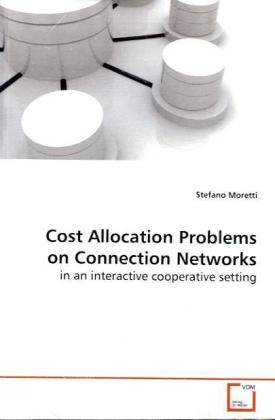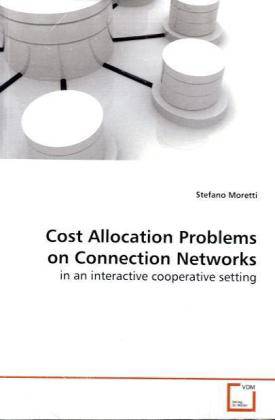
- Afhalen na 1 uur in een winkel met voorraad
- Gratis thuislevering in België vanaf € 30
- Ruim aanbod met 7 miljoen producten
- Afhalen na 1 uur in een winkel met voorraad
- Gratis thuislevering in België vanaf € 30
- Ruim aanbod met 7 miljoen producten
Zoeken
Cost Allocation Problems on Connection Networks
in an interactive cooperative setting
Stefano Moretti
Paperback | Engels
€ 67,45
+ 134 punten
Omschrijving
Cooperative games are mathematical models that can
be used to analyze the interaction among agents who
can obtain benefits by cooperating. This book mainly
deals with cooperative games which arise from
combinatorial optimization problems on weighted
graphs. These problems take place in the presence of
a group of agents, each of whom needs to be
connected directly or via other agents to a source
and the connections among agents are costly.
The goal of this book is to analyze allocation
methods which can also keep incentives for
cooperation under modifications in the structure of
the graph, as in the population of agents and
in the structure of weights. Examples of such
situations can be found in supply transportation
networks or telecommunication networks. The
allocation methods studied in this book can be
easily implemented in practical network situations,
are flexible to changes in the network situation,
and meet the requirement of continuous monitoring by
the agents involved.
be used to analyze the interaction among agents who
can obtain benefits by cooperating. This book mainly
deals with cooperative games which arise from
combinatorial optimization problems on weighted
graphs. These problems take place in the presence of
a group of agents, each of whom needs to be
connected directly or via other agents to a source
and the connections among agents are costly.
The goal of this book is to analyze allocation
methods which can also keep incentives for
cooperation under modifications in the structure of
the graph, as in the population of agents and
in the structure of weights. Examples of such
situations can be found in supply transportation
networks or telecommunication networks. The
allocation methods studied in this book can be
easily implemented in practical network situations,
are flexible to changes in the network situation,
and meet the requirement of continuous monitoring by
the agents involved.
Specificaties
Betrokkenen
- Auteur(s):
- Uitgeverij:
Inhoud
- Aantal bladzijden:
- 164
- Taal:
- Engels
Eigenschappen
- Productcode (EAN):
- 9783639115093
- Verschijningsdatum:
- 29/12/2008
- Uitvoering:
- Paperback
- Afmetingen:
- 152 mm x 229 mm
- Gewicht:
- 227 g

Alleen bij Standaard Boekhandel
+ 134 punten op je klantenkaart van Standaard Boekhandel
Beoordelingen
We publiceren alleen reviews die voldoen aan de voorwaarden voor reviews. Bekijk onze voorwaarden voor reviews.











